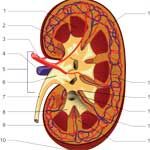
In recent years, deaths from chronic kidney disease for Indigenous Australians in some age groups have been between 30 and 60 times more common than those of non-Indigenous Australians.
Although Indigenous people are at high risk of getting kidney disease, many people haven’t heard of the disease and don’t know what symptoms to look out for.
Your kidneys help filter waste from your body. Chronic kidney disease happens when the kidneys don’t function properly due to damage to the kidney cells, which can happen in a number of ways. For this reason, the disease is sometimes dubbed ‘the silent killer’ because the symptoms can develop undetected over time, from months to years.
Certain factors increase the risk of getting kidney disease, such as smoking, drinking alcohol, being over the age of 35, inadequate nutrition, having diabetes, high blood pressure, a family history of kidney disease or a low birth weight. The good news is that if you detect the disease early you can get positive treatment that reduces the likelihood that the disease will lead to end-stage kidney disease or complete kidney failure.
The symptoms of the onset of kidney disease are not always obvious, but here are some to watch out for:
a change in how often and how much urine you pass (especially if you first experience an increase at night)
- blood or foam in your urine
- burning or pain when you pass urine
- puffy eyes or ankles, and
- back pain around your kidneys (under your lower ribs at the back).
You may also experience any of the following when your kidneys begin to fail:
- fatigue or ongoing tiredness
- an inability to focus or concentrate
- generally not feeling well
- no appetite
- nausea (and associated vomiting), and shortness of breath.
- If you experience any of these symptoms, talk to your doctor or your local Aboriginal Medical Service.
Comments are closed.